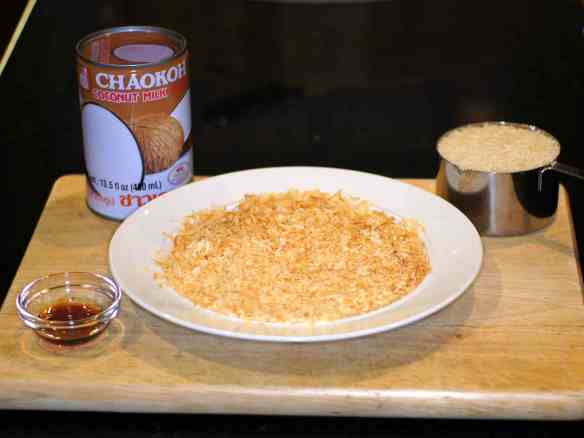
By Coach Maria - Salus Nutritionist & Food Expert
Picture this:
A person that works their butt off in the gym, choosing to add on an exhausting set or more of sit-ups after a grueling workout. They get stronger, they reach amazing performance goals and that makes them happy. They aren't, however, happy with their most important goal - getting to see some definition in the midsection - ABS!
If this sounds all too familiar - read on.
There are typically 2 types of athletes I have worked with:
1. An athlete that asks lots of questions about nutrition, retains the information, researches more on their own and makes changes happen. Done.
2. Everyone else.
Over the years, I've realized that although most everyone that comes to me for nutrition advice will listen, the percentage of those people that take action is small.
The reason behind that has many variables, but for the most part, it comes down to being trapped in the false food notions that are still commonly prevalent, some level of skepticism, not knowing where or how to start or simply not caring.
So how does one go about making a change?
Changing the mindset - looking at food differently and learning how food is reactive in our body.
Switching the role of food from simply a vehicle to satisfy hunger and/or cravings to a drug-like substance that has consequences (both good and bad) to how our body functions, looks and feels, can elicit incredible changes in the mindset.
Over time, you begin to base your decisions on how said food will react within your body and what kind of impact it will have on your hormones.
That's right, the food you eat will have a direct impact on your hormonal response and, just like a drug, it can either make things better or make things worse.
Our hormones control much of everything that can have an impact on our lives:
- Depression
- Happiness
- Motivation
- Energy
- Sex drive
- Weight loss
- Weight gain
- Anger
- Stress
Food determines not only your hormonal response, but it determines how you look. Choosing to eat junk food devoid of any positive benefits except to your temporary taste buds, will eventually catch up (if it hasn't already).
Yes, we all know of the person that can eat whatever they want and still look "good", but outward appearances do not tell the whole story. The metabolic health-storm that's brewing within will, at some point, create some serious health issues down the road. It will and there's no denying it.
Food. Determines. Everything.
Yes, there are some competitive athletes that can function and perform - successfully - on things like pop tarts and beer. They are either 1. The exception, not the rule or 2. Beginning the journey towards a health crisis that will present itself in a few years down the road.
We've heard it over and over - you are what you eat - whether it's in the now or down the road; you want a body looking and feeling like a chemical-filled, dye-loaded, pig-hide-containing-gelatin-pop-tart??
Don't overcomplicate eating well or eating clean. It's really simple, you won't starve, real food tastes good and you might just end up being happy following these basic guidelines:
Eat Real Food!
- It shouldn't contain chemicals, additives and preservatives
- It should be unprocessed
- It shouldn't last for weeks, months or even years
- It should go bad if it sits on the counter for a prolonged time
- It should have been alive, preferably recently
- It should have been treated with respect when alive
NO: grains <highly processed>, beans/legumes <gut issues>, bread, processed sweets, cookies, cake, juices, sodas, artificial sweeteners, margarine, canola oil)
For Pete's Sake, Cook Something!
The only way you'll know what is going into the meals you eat (and you should care about that), is by choosing to do most of the cooking yourself. Yes, we're all busy and our time is equally as important, but making a priority now - when we can run around crazy-busy - will impact our quality of health/life later - when our kids have grown and moved out and we have time to enjoy life properly and leisurely (or is living a retired life of joint pain, arthritis, or other health issues that prevents truly enjoying life really appealing to you??).
Eating out is, without debate, convenient. But restaurants use junk-cheap ingredients in order to cut food costs (um, no, restaurants are not in business to make sure you stay healthy), they jack up prices, balloon up meals with unnecessary caloric ingredients to make food taste better and, hence, become more addictive (sugar, msg, salt, etc.).
My message is not that going out to eat is wicked or that all restaurants are evil. I enjoy going out to eat, but I can tell you that quality trumps convenience when deciding where to go. I prefer places that choose local, quality and fresh ingredients, owners that care about where their ingredients come from and do not sacrifice this quality over anything else.
These restaurants aren't your typical low-cost, $5 meals and although I prefer to save on cost, I know that those cheap meals = cheap ingredients. Plain and simple.
If I'm paying a little more when I go out to eat, I'm ok with it because:
- I won't eat out frequently and it becomes a special-occasion meal when I do.
- I know when I do eat out, the ingredients and clean food prep habits will not be far from what I would do at home.
- Good tasting, quality food = happy gut, hormonal balance, without negative impact on body composition.
None of that, however, will happen if you do not begin to keep food in check.
Utilize Slow Cooking - Frequently!
I can't think of a time when someone complained to me that they don't cook at home because they had too much time on their hands. The opposite is quite true and probably the biggest obstacle to getting people to prepare most of their meals at home. To a certain extent, I agree (although I see plenty of people putting in a lot of time and effort elsewhere that could be applied to cooking meals at home), but cooking at home does not = endless hours doing food prep and cooking. You can if you want, but there are many, many meals that can be thrown together in less than 30 minutes, especially if you have a grill.
If you work all day and the last thing you want to do is cook when you get home (sigh), then your excuse is about to meet its end.
Enter the slow cooker.
There is honestly no valid excuse for not having a warm, home-cooked meal when you have a slow cooker. There is an endless supply of recipes online (and yes, I know most of you spend quite a bit of time online) and it takes MINIMAL effort <less time than it takes you to browse through Facebook no doubt :)>
If you don't have a slow cooker - GET ONE! It will make your I-don't-have-time-to-cook food issues into I-can't-believe-how-easy-that-was.
Changes Begin Today!
- Eat out less often
- Cook at home more often
- Slow cook ONE meal this week (then maybe more next week, etc.)
- Pass on the dessert ONE time (then maybe another time, then another time...)
- Don't convince yourself that you'll start on a Monday - you'll continue the cycle of not doing it
- Don't tell yourself you need to do all of this overnight - it won't happen. It's one food at a time, one meal at a time, one day at a time, one week at a time, one month at a time, one year at a time. It's a gradual process and you shouldn't beat yourself up when this process takes a long time.
- Little steps in the right direction will eventually elicit BIG and permanent lifestyle changes.
Got abs? If your answer is no, look at what you're eating.



